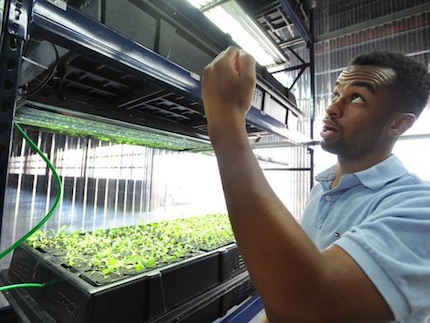
Share On Social!
According to Michigan State University, in Detroit, Michigan, up to 52% of Latino children live in poverty, and where there is poverty, many times there is little to no access to fresh vegetables or healthy foods.
But new considerations for the state’s urban agricultural laws may help provide new small business opportunities for indoor and vertical farming and also help increase access to healthier food within the state.
A new urban agriculture ordinance is being proposed to increase zoning districts for indoor agriculture that would take into account smaller businesses and operations that could help provide healthy fresh foods like Kale, lettuce and more.
The new policy change could also open up the over 78,000 vacant buildings that are not being utilized for any business, city planner Kathryn Underwood, explained to The Detroit News.
The new indoor farms can be grown through various ways, including but not limited to, hydroponic, aeroponic and aquaponic systems. All which are also ways that can also help decrease water usage and extend the fresh leafy greens shelf life, explained Jeff Adams, Artesian Farms Managing Partner.
Since 2013, the indoor urban agriculture business has operated, growing from 100 farms in 2004, to now 1,400 farms, but more growth with the new policy could help business owners increase jobs and healthier food access throughout the city.
Adams explained to local news, that this would also open up doors for farming year round, increasing his businesses opportunity to employ people.
According to Underwood, the current city policy only allows for urban indoor farming to operate in large-scale, but the City plans to vote on the new expansion for urban agriculture this fall.
Lack of access to healthier foods can be set up major risks for heart disease, explains a recent study.
Initiatives around urban agriculture that increases healthier food access in the city, could help Latino families have access to greener goods, but transportation would also still be a key factor in accessing healthier foods.
To learn more about Detroit’s city-wide policy proposal, click here.
To learn more about the need for healthier food environments for Latino’s health, click here.
By The Numbers
142
Percent
Expected rise in Latino cancer cases in coming years



